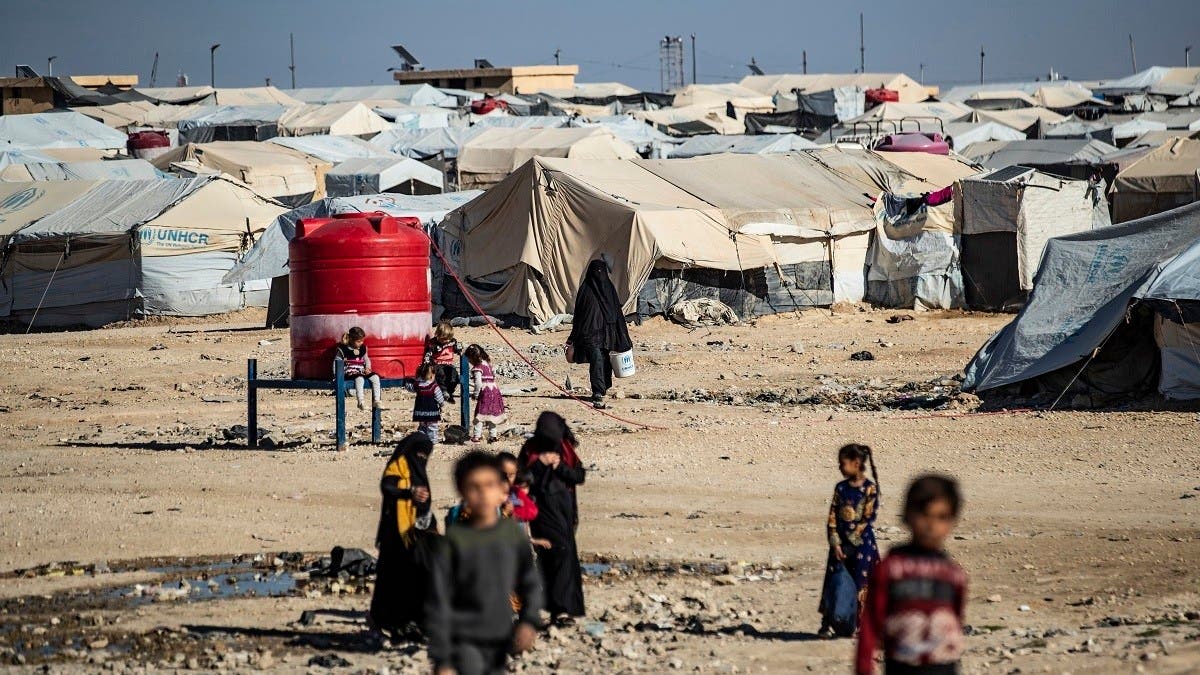A distressing series of voice notes sent by an injured Australian teenager from a prison in northeast Syria underscores the plight of thousands of forgotten children who remain trapped in overcrowded detention facilities in Syria and Iraq.
Hundreds of minors are believed to be holed up in Gweiran Prison, which has been at the center of a violent standoff between ISIS militants and US-backed Kurdish fighters that began a week ago.
For the latest headlines, follow our Google News channel online or via the app.
The Kurdish-led forces said Wednesday they took control of the last section of the prison controlled by Islamic State militants and freed a number of child detainees they said had been used as human shields. That ended a weeklong assault by the extremists on one of the largest detention facilities in Syria. But the fate of hundreds of boys remained unclear.
“We are talking about nearly 800 children who are probably some of the most vulnerable children in the world right now. The recent violence in the prison has made things for them much much worse,” said Juliette Touma, Middle East regional spokesperson for the UN children’s agency.
ISIS fighters stormed the prison on Thursday, aiming to break out thousands of comrades who simultaneously rioted inside. The attack is the biggest by ISIS militants since the fall of the group’s “caliphate” in 2019.
The fighting appears to have left multiple child inmates killed or wounded, though numbers are not known.
Human Rights Watch provided The Associated Press with a series of audio messages sent by the 17-year-old Australian from inside the prison in which he appealed for help, saying he was injured in the head and was bleeding. The boy says his friends got killed and he has seen bodies of kids aged 8 to 12.
But who are these kids, and why are they there?
‘Cubs of the caliphate’
Some of the kids were children when their parents plucked them from their own countries after they decided to join the so-called Islamic caliphate declared in 2014 over parts of Syria and Iraq. Others were born there. Many attended ISIS-run schools where they were trained for combat.
While ISIS carried out massacres against residents and enslaved many of the women and girls, they also sought to re-educate young boys and tried to turn them into extremist fighters. They recruited teens and children using gifts, threats and brainwashing.
Boys were turned into killers and suicide bombers. ISIS videos showed kids carrying out beheadings or shooting captives in cold blood.
It was all part of a concerted effort to build a new generation of militants. They called them cubs of the caliphate.
Most were later captured by Kurdish-led forces during the US-backed campaign that brought down ISIS three years ago, thrown into squalid, overcrowded detention centers and where they continue to languish.
Others were put in squalid camps in northeast Syria that hold families of suspected ISIS fighters, where they are exposed to violence, exploitation and abuse. Once they become teenagers deemed old enough to separate from their mothers, they are transferred to one of the detention centers where they join the fighters. The age cut-off rules are not exactly clear. Some as young as 12 were reportedly in Gweiran Prison.
Letta Tayler of Human Rights Watch estimates 600 minor boys, around half of them Iraqis and other non-Syrians, were inmates in the prison. Most are between 14 and 17 years old, though some are as young as 12, Tayler said. It is not clear how many of the boys in prison were trained by ISIS or whether any have committed any crimes.
Why they are still there
Mostly because their governments have refused to repatriate them.
Kurdish authorities have asked countries to repatriate their nationals, saying keeping thousands of detainees in cramped facilities is putting a strain on their forces and creating a new generation of militants.
“None has even been brought before a judge to determine whether they should be detained,” Tayler said. “These children… should never have been placed in this squalid overcrowded prison where their lives are clearly at risk to begin with. Their countries should have brought them home to help them rebuild their lives long ago.”
But home governments often see the children as posing a danger rather than as needing rescue.
Some former Soviet bloc states have let some of their citizens back in, but other Arab, European and African countries have repatriated only minimal numbers or have refused.
Kurdish authorities run more than two dozen detention facilities scattered around northeastern Syria holding about 10,000 ISIS fighters. Among the detainees are some 2,000 foreigners, including about 800 Europeans.
In addition, some 27,500 children of 60 different nationalities are locked up at the sprawling al-Hol camp, which houses families of ISIS members. Most of them are Iraqis, followed by Syrians.
Most of them not yet teenagers, they are spending their childhood in limbo under miserable conditions with no schools, no place to play or develop, and seemingly no international interest in resolving their situation.
“There needs to be collective responsibility to get these children out of these prisons and out of these camps,” Touma, of UNICEF, said. That responsibility, she added, lays mostly with the countries that have the highest number of children there.
“They all deserve to get out of that part of Syria and be home and safe.”
Read more: Kurdish forces in Syria retake prison in Hasaka after ISIS attack

 World3 years ago
World3 years ago
 World3 years ago
World3 years ago
 Business11 months ago
Business11 months ago
 Entertainment7 years ago
Entertainment7 years ago
 World7 years ago
World7 years ago
 Entertainment7 years ago
Entertainment7 years ago






